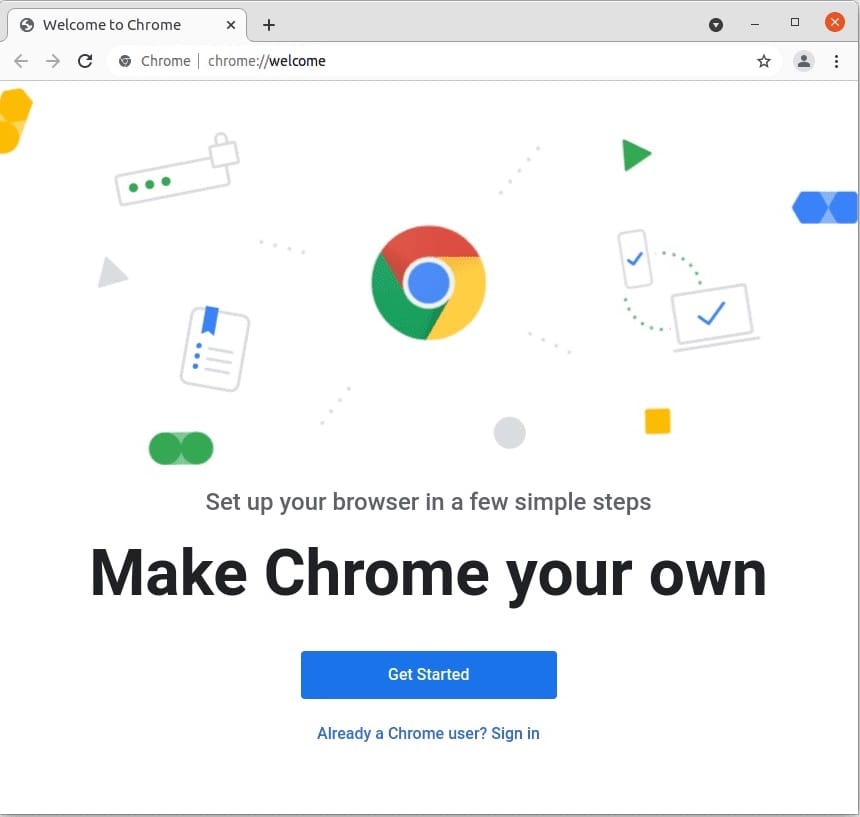How To Install Google Chrome on AlmaLinux 9

In this tutorial, we will show you how to install Google Chrome on AlmaLinux 9. For those of you who didn’t know, AlmaLinux 9, known for its stability and performance, is a popular choice among Linux users. One of the essential applications many users require is Google Chrome. In this guide, we will explore two methods for installing Google Chrome on AlmaLinux 9 using the Command Line Interface (CLI).
This article assumes you have at least basic knowledge of Linux, know how to use the shell, and most importantly, you host your site on your own VPS. The installation is quite simple and assumes you are running in the root account, if not you may need to add ‘sudo‘ to the commands to get root privileges. I will show you the step-by-step installation of the Google Chrome browser on AlmaLinux 9. You can follow the same instructions for CentOS and Rocky Linux or RHEL-based.
Prerequisites
- A server running one of the following operating systems: AlmaLinux 9.
- It’s recommended that you use a fresh OS install to prevent any potential issues.
- SSH access to the server (or just open Terminal if you’re on a desktop).
- An active internet connection. You’ll need an internet connection to download the necessary packages and dependencies for Google Chrome.
- A
non-root sudo useror access to theroot user. We recommend acting as anon-root sudo user, however, as you can harm your system if you’re not careful when acting as the root.
Install Google Chrome on AlmaLinux 9
Step 1. Before we jump into the installation process, it is crucial to ensure your system is up-to-date. This preliminary step prevents potential conflicts and issues during the installation. Open your terminal and follow these commands:
sudo dnf clean all sudo dnf update
Step 2. Installing Google Chrome on AlmaLinux 9.
- Method 1: Using the Official Google Chrome Repository
To benefit from the most stable and up-to-date version of Google Chrome, adding the official Google Chrome repository is the recommended approach. Execute the following command:
sudo dnf install fedora-workstation-repositories
Security is paramount in the Linux world. Therefore, it’s essential to import Google’s package signing key to verify the authenticity of the packages you download. Execute the command below:
sudo rpm --import https://dl.google.com/linux/linux_signing_key.pub
Now that we’ve added the repository and imported the signing key, it’s time to install Google Chrome. Run the following command:
sudo dnf install google-chrome-stable
- Method 2: Using the RPM Package
If you prefer not to use a repository, you can download the Google Chrome RPM package directly. Begin by navigating to Google Chrome’s official website and downloading the RPM package suitable for your architecture (32-bit or 64-bit):
wget https://dl.google.com/linux/direct/google-chrome-stable_current_x86_64.rpm
With the RPM package in your current directory, install Google Chrome using the following command:
sudo dnf install./google-chrome-stable_current_x86_64.rpm
To verify the installation:
google-chrome --version
Step 3. Launching Google Chrome on AlmaLinux.
Launching Google Chrome via the command line is straightforward. Simply type:
google-chrome

Step 4. Updating Google Chrome.
Google Chrome receives frequent updates to enhance security and provide new features. To ensure you have the latest version, execute the following commands:
sudo dnf check-update google-chrome-stable sudo dnf update google-chrome-stable
Congratulations! You have successfully installed Google Chrome. Thanks for using this tutorial for installing the Google Chrome browser on your AlmaLinux 9 system. For additional help or useful information, we recommend you check the official Chrome website.